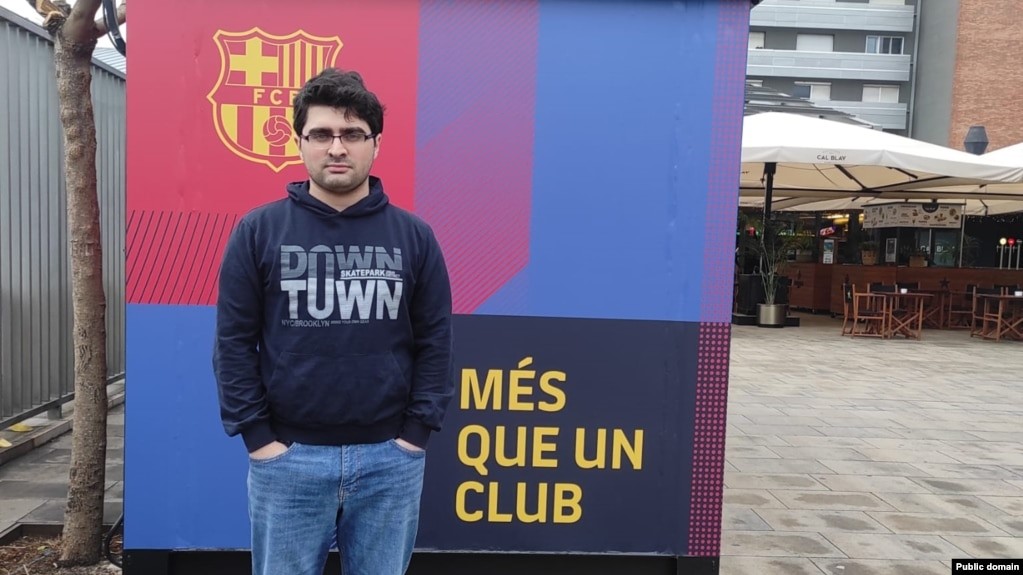Baku expects stronger ties with Iran after new president's election
Iran’s new president is Azerbaijani
“Azerbaijan expects more active development of relations with Iran after the inauguration of the new president,” said Azerbaijan’s foreign minister, Jeyhun Bayramov.
On July 5, in the second round of Iran’s presidential elections, the representative of the “reformist wing” of Iran’s political elite, ethnic Azerbaijani Masoud Pezeshkian, won.
- The US has indefinitely postponed joint military exercises with Georgia
- Is the South Caucasus in Trump’s plans? A view from Baku
- “This is just the beginning”: Armenia will receive 10 million euros from the European Peace Facility
“A new president has been elected in Iran, and the president of Azerbaijan has congratulated him. We are interested in implementing previously agreed projects between Azerbaijan and Iran,” said the minister.
According to him, Azerbaijan is keen on developing relations with Iran.
“There are historical ties between our countries. We have a program with a future outlook. We believe that relations will develop,” Bayramov said.
The previous president, Ebrahim Raisi, along with the foreign minister and other officials, tragically died on May 19 in a helicopter crash in the mountains of northern Iran. The incident occurred shortly after the aircraft took off from Iran following a meeting at the border with Azerbaijani resident Ilham Aliyev.
Iran at a сrossroads
Mehman Aliyev, head of the ASTNA analytical center, believes that Tehran has taken a decisive step towards potential transformation with the election of Masoud Pezeshkian, a prominent figure of Iran’s liberal elite.
“Pezeshkian’s victory in the presidential elections, where he was the only reformist among six candidates, marks a significant shift in political life. The election results, with a higher voter turnout of 49.8% and 53.6% of votes in favor of Pezeshkian compared to the ultra-conservative Saeed Jalili, reflect a conscious desire for change among the Iranian population,” he wrote in his analytical article.
In his opinion, Pezeshkian’s triumph can be seen as a turning point for a country grappling with numerous internal and external issues:
“International isolation of Iran, economic decline, internal discontent, and escalating tensions with Israel create a complex backdrop for Pezeshkian’s leadership.”
In his victory speech, Pezeshkian called for unity and collective efforts: “Dear people of Iran, the elections are over, and this is just the beginning of our work. The difficult path ahead will not be paved without your support, empathy, and trust. I extend my hand to you and pledge my honor that I will not leave you alone on this journey,” he said.
Dialogue with Iran’s opponents
“Pezeshkian’s calls for dialogue with Iran’s adversaries, particularly concerning the nuclear program, highlight his pragmatic approach to addressing the country’s internal issues.
He articulated this position during presidential debates before the second round of voting, emphasizing the need to resolve Iran’s global confrontations to effectively tackle domestic problems: ‘The main question is the future: do we want to resolve our issues with the world or not? I believe we must break the deadlock to solve the country’s problems,’ he said in one of his speeches.”
“The death of Amini is our fault!”
“An experienced politician and a qualified cardiologist, Pezeshkian served as minister of health under reformist president Mohammad Khatami. His political career has been marked by a firm stance against the suppression of pro-democracy protests in 2009 and the brutal police actions following the death of Mahsa Amini in 2022.
Amini’s death in police custody, allegedly for violating the Islamic Republic’s strict dress code for women, sparked mass protests. Pezeshkian openly criticized the state’s harsh response, attributing blame to various social sectors, including himself: ‘This is our fault. We want to impose religious faith by force. It is scientifically impossible. I bear part of the blame, respected religious figures and mosques bear part of the blame, and the (Iranian) broadcasting authority bears part of the blame.’
Pezeshkian’s inclusive rhetoric, positioning himself as a candidate for all Iranians regardless of political or religious affiliation, has resonated widely. His success in the elections signals not only the public’s hope for reforms but also the elite’s recognition of the need for a new direction to avoid confrontation with the West and attract vital investments.”
Azerbaijani factor
“The Azerbaijani factor, historically underestimated, has become prominent with Pezeshkian’s victory. Unlike many Iranian Azerbaijanis who covertly identify as Turks, Pezeshkian openly embraces this identity – ‘I am a Turk,’ a stance that challenges traditional Perso-centric narratives. His election carries significant symbolic weight, recalling the Turkic roots and influence in Iran’s history, particularly its greatness during the Safavid period under the Turkic Shah Ismail Khatai.
Recognizing Azerbaijanis as an integral part of Iran’s socio-political structure is not just a nod to history but a reflection of their ongoing influence in various societal sectors. Pezeshkian’s presidency may well herald a new phase of Persian-Turkic synthesis that has long underpinned Iran’s statehood. This synthesis, now tinged with liberal tones, promises a recalibrated approach both domestically and internationally, offering a glimmer of hope for a nation at the crossroads of change,” concluded Mehman Aliyev.
Iran’s new president is Azerbaijani




















